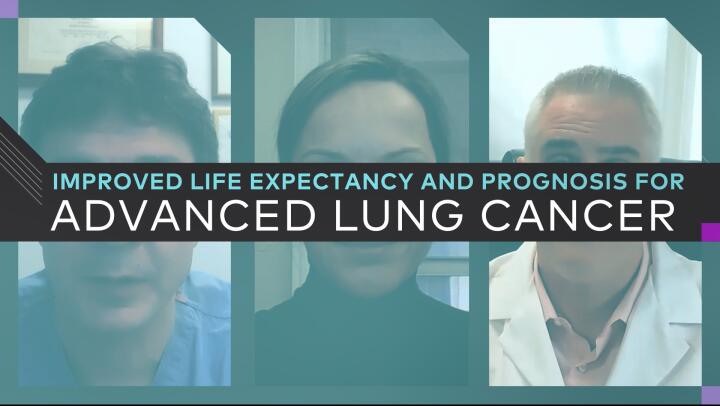
Non-small cell lung cancer (NSCLC) is the most common type of lung cancer in the United States. The American Cancer Society estimates that between 80 and 85% of lung cancers are non-small cell lung cancers, and the rest are known as small cell lung cancers (SMLC).
Non-small cell lung cancer is the name given to a group of cancers that behave similarly; they have similar characteristics. They’re not exactly the same—the cancerous cells grow in slightly different areas of the lung, which in turn affects the way that the cancer grows and spreads—but the typical treatment and prognosis are similar. These three main subtypes of NSCLC are:
Squamous cell carcinoma. This type of cancer originates in what the American Cancer Society calls “early versions of squamous cells.” Mature squamous cells line the airways of your lungs. Roughly 25 to 30% of lung cancers fit into this category.
This type of cancer tends to grow in the outer sections of the lungs, starting with the cells that create and secrete mucus. It’s a slower-growing form of cancer, compared to the others. About 40% of lung cancers are adenocarcinomas.
Large cell carcinoma. This type of cancer is sometimes called “undifferentiated carcinoma.” It tends to grow and spread quickly. And it can develop in any part of the lung. About 10 to 15% of lung cancers fall into this category.
There are a few other types of tumors that can and do grow in the lungs, but they aren’t quite as common.
Understanding the Clinical Stages
Doctors use a system called the TNM system to determine the stage of whatever type of non-small cell lung cancer that you may have. This method describes the size of the tumor (T), the presence of cancerous cells in the lymph nodes (N), and any evidence the cancer has spread, or metastasized, to other parts of the body (M). Categorization starts with the earliest stage, stage 0, and progresses through the most advanced stage, stage 4.
Stage 3 non-small cell lung cancer refers to cancer that is continuing to spread from the lungs to the lymph nodes or other structures in the chest that are near the lungs. However, the cancer has not yet spread to distant parts of the body.
Even within stage 3, there are two main substages: IIIA and IIIB. Each of those subtypes can be broken down into more specific diagnoses that describe the size of the tumor or tumors and their location, as well as any effect on the lymph nodes and their location. As you can probably surmise, IIIB is more advanced than IIIA. Recently, a third category, IIIC, was added to describe some of the most advanced cases that would previously have been categorized as IIIB. According to the American Cancer Society, the five-year survival rate is lower for those cases.
Treatment Options
By the time a non-small cell lung cancer has progressed to stage 3, it’s considered advanced. By this point, treatment can improve the situation, but won’t actually cure the cancer. Your doctor might recommend radiation therapy, chemotherapy, surgery, or a new type of treatment called immunotherapy. Immunotherapy medications target specific processes in your body to improve your immune system’s response against your cancer. Treatment options depend on many factors, including how advanced your cancer is.
Treatment for IIIA. Treatment could include a combination of radiation therapy, chemotherapy and possibly surgery afterwards to remove any cancer that could be removed. The size and location of the tumor, lymph node involvement, and your overall health will affect the specific plan that your oncologists and surgeons are likely to recommend. Some people with stage IIIA cancer might also be a candidate for immunotherapy.
Treatment for IIIB. When the cancer has spread to lymph nodes and other structures in the chest, surgery may no longer be an option. Your healthcare providers are more likely to start with a combination of chemotherapy and radiation therapy if you are in good overall health and can tolerate both.
If this all seems overwhelming—and it can be—ask your doctor or another member of your healthcare team to go over your specific diagnosis and stage with you. They can explain about your situation in more detail and go over your treatment options, too.

















